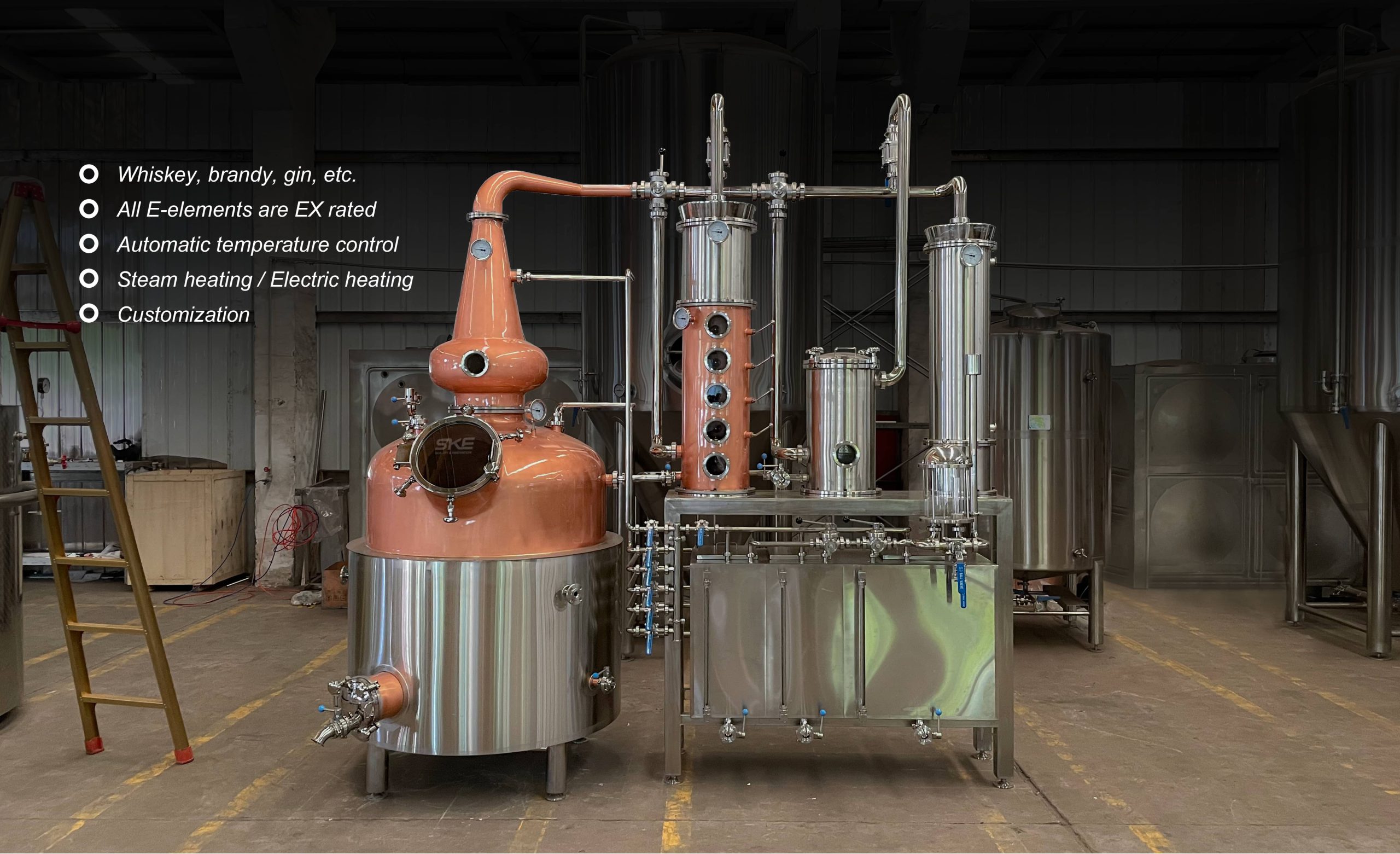Introduction

Pure pot still distillation is a traditional method with a rich history deeply rooted in the production of whiskey. This article aims to delve into the secrets and intricacies behind this unique distillation process, exploring its heritage, techniques, and the characteristics it imparts to the final spirit.
The Origins of Pure Pot Still Distillation
Pure pot still distillation has its origins in Ireland, where it emerged as a method for crafting whiskey with distinct flavor profiles. Dating back centuries, this traditional technique involves the use of copper pot stills to distill a mash of malted and unmalted barley, resulting in a spirit renowned for its complexity and depth of flavor.
Understanding the Distillation Process
At the heart of pot still distillation is the copper pot still. These stills play a crucial role in the process, allowing for the separation of alcohol from the mash through heating and condensation. Unlike other methods, pot still distillation involves a single batch distillation, where the entire mash is distilled in one go, contributing to the unique character of the final product.
Key Characteristics of Pure Pot Still Whiskey
One of the defining characteristics of pot still whiskey is its rich and robust flavor profile. The combination of malted and unmalted barley, along with the copper pot stills, results in a spirit with notes of spice, fruit, and a distinct creaminess. Additionally, pot still whiskey often exhibits a full-bodied mouthfeel and a lingering finish, making it a favorite among whiskey connoisseurs.
The Role of Copper in Pure Pot Still Distillation
Copper plays a crucial role in pot still distillation, contributing to both the flavor and quality of the final spirit. Copper reacts with sulfur compounds present in the mash, helping to remove impurities and producing a cleaner, smoother whiskey. Additionally, the shape and size of the pot stills influence the character of the spirit, with taller, narrower stills typically producing lighter, fruitier whiskeys, while shorter, broader stills yield richer, more robust flavors.
The Art of Blending in Pure Pot Still Whiskey
While pot still whiskey can be enjoyed on its own, blending is also an integral part of the process. Master blenders carefully select and combine different batches of whiskey to create a balanced and harmonious final product. By blending whiskeys of varying ages and characteristics, distillers can achieve a complexity and depth of flavor that is greater than the sum of its parts.
Comparison of Pure Pot Still and Single Malt Whiskey

Now that we’ve compared the key aspects of pot still and single malt whiskey, let’s delve deeper into the art of blending in pot still whiskey production.
| Aspect | Pure Pot Still Whiskey | Single Malt Whiskey |
|---|---|---|
| Grain Composition | Malted and unmalted barley | Malted barley |
| Distillation Process | Distilled in copper pot stills | Distilled in pot or column stills |
| Flavor Profile | Rich, robust, with spicy and fruity notes | Typically fruity and floral, with subtle spice |
| Origin | Originated in Ireland, but also produced elsewhere | Originated in Scotland, but produced globally |
| Blending | Often blended for complexity | Single distillery expression, but some blends exist |
| Aging | Typically aged in oak barrels | Typically aged in oak barrels |
| Examples | Redbreast, Green Spot, Powers | Glenfiddich, Macallan, Glenlivet |
Conclusion
Pure pot still distillation is a time-honored tradition that continues to produce some of the finest whiskeys in the world. From its humble origins in Ireland to its widespread popularity today, the secrets behind pot still distillation lie in its careful craftsmanship, quality ingredients, and respect for tradition. Whether enjoyed neat, on the rocks, or in a classic cocktail, pure pot still whiskey offers a truly unique and memorable drinking experience.
FAQ
Q:Is pure pot still whiskey only produced in Ireland?
A:No, while pure pot still whiskey has its origins in Ireland, similar methods are used in the production of whiskey in other regions, such as Scotland and the United States. However, the term “pure pot still” is typically associated with Irish whiskey.
Q:What is the difference between pure pot still whiskey and single malt whiskey?
A:The main difference lies in the grains used and the distillation process. Pure pot still whiskey is made from a combination of malted and unmalted barley, distilled in copper pot stills, whereas single malt whiskey is made exclusively from malted barley and is typically distilled in pot stills or column stills.
Q:How does aging affect the flavor of pure pot still whiskey?
A:Aging in oak barrels imparts additional flavors and complexities to pure pot still whiskey, including notes of vanilla, caramel, and oak. The duration of aging, as well as the type of oak used, can significantly influence the final flavor profile of the whiskey.

